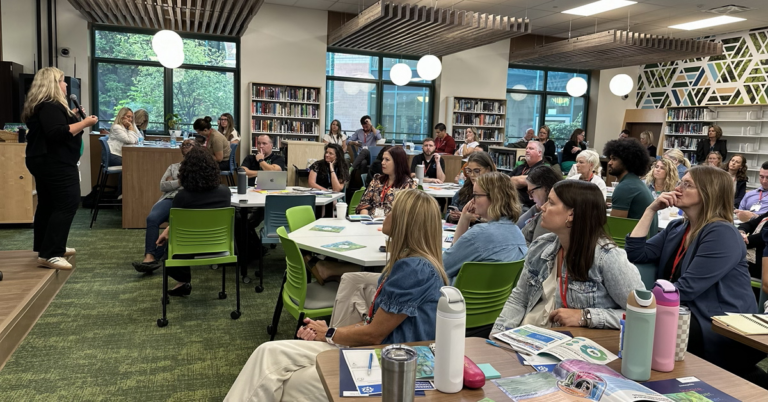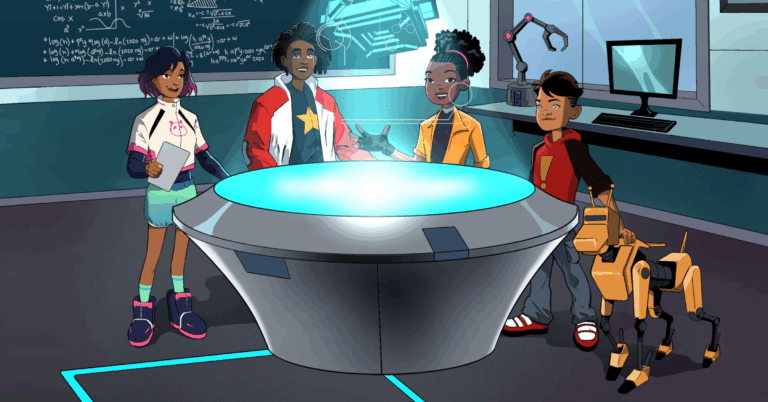For Janelle Field, learning and engagement coach, and Patrick Walsh, superintendent, of Belgrade-Brooten-Elrosa School District (BBE) in Belgrade, Minnesota, the bottom line about traditional grading systems is that they aren’t good for learners.
“Grades are not good for our kids,” said Field. “They stop thinking more deeply, taking risks or trying something new because it could drop their GPA. We know learners need knowledge and skills but how do we really prepare and assess them in a way that prepares them for an unknown future?”
Belgrade-Brooten-Elrosa’s approach provides opportunities for educators to engage in a fair amount of ‘unschooling’ as they collectively rethink grading in support of personalized, competency-based learning.
“How can we focus the learning process and have more conversations with learners? How can we not only provide feedback, but provide opportunities for them to assess themselves? We want them to learn how to learn,” said Walsh.
A few high-level considerations for the district:
- You don’t eliminate feedback. You give a different kind of feedback. The summative grade doesn’t reflect learning. Coaching-type feedback is more engaging for students and also for parents when they are looking at those summative feedback reports.
- Meaningful learning experiences grounded in relationships. Educators and learners both need to be able to articulate the “why” behind the learning.
- A portrait of a graduate that provides a lens for skills, not just content. Learner profiles and varied pathways will provide students the opportunity to set goals and demonstrate learning in new ways. BBE has joined the Mastery Transcript Consortium, along with like-minded schools, who are rethinking what an exit transcript looks like. Rather than using traditional A-F grading, BBE is projecting a transcript based on rubrics that focus on the 6 C’s: character, citizenship, collaboration, communication, creativity and critical thinking.
- Prioritized competencies that allow for deep learning. With 40 standards in any given subject area, there’s pressure to get through them as quickly as possible. Thinking about how standards build on each other – and how they are allowing students to practice the skills needed to achieve the district’s portrait of a graduate – provides focus.
- Professional development that elevates collaboration and sustainable change. There’s only so much time in the school day but ensuring educator voices are heard and teachers are seen as partners in this work translates to engagement and buy-in throughout the learning community.
Field and Walsh highlighted the trust of their board and parents within the district as something they have built and something they will prioritize holding onto as they navigate these changes. Next steps for the district involve piloting new practices in a school-within-a-school model, providing a place not only to refine their approach but also for parents and teachers to observe and learn. Through grant funding and a successful $22M building addition / renovation voted on by the community, they’ve redesigned spaces for collaboration and flexible learning – and stress that the district’s commitment to personalized, competency-based learning is crucial to the long-term success not just of students, but of the community as a whole.
“We want learners to see value in our community. We have a specific goal of practicing ‘edupreneurship’, the combination of education focused on entrepreneurship,” said Walsh. “We’re surrounded by bigger communities. We don’t have a population or a growth factor so we have to build from within. We have to do a good job retaining our students and providing them the opportunity to see a future for themselves here.”
At the end of the day, the district’s move toward ungrading shifts teaching and learning to consider what students need to be lifelong learners, to practice the risk-taking and re-skilling necessary to succeed in a future that will look very different from the world in which traditional grading was conceived.
“I hope that we give them the skills and knowledge that enable them to be curious learners. Joyous learners,” Field said. “We want them breaking down the door to get into school.”
This was written by former Senior Manager of Communications Jillian Kuhlmann.




